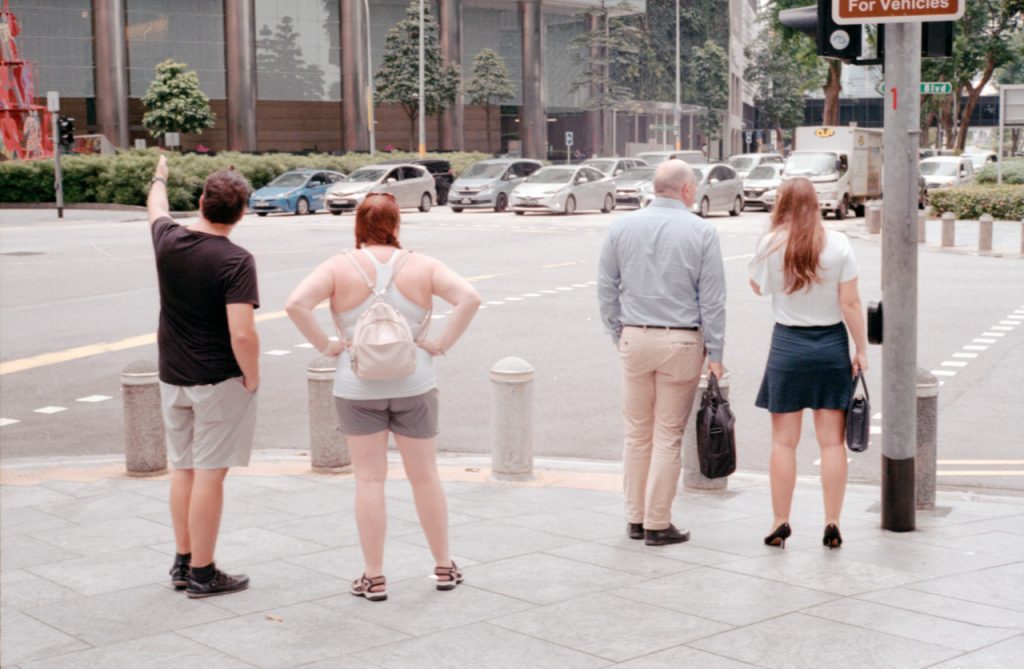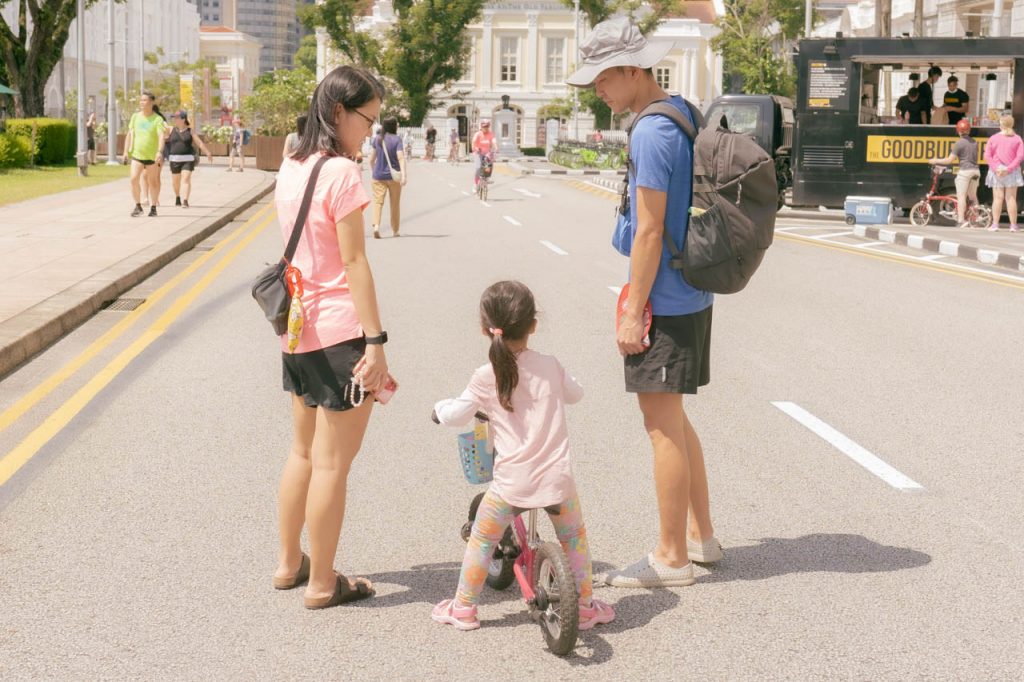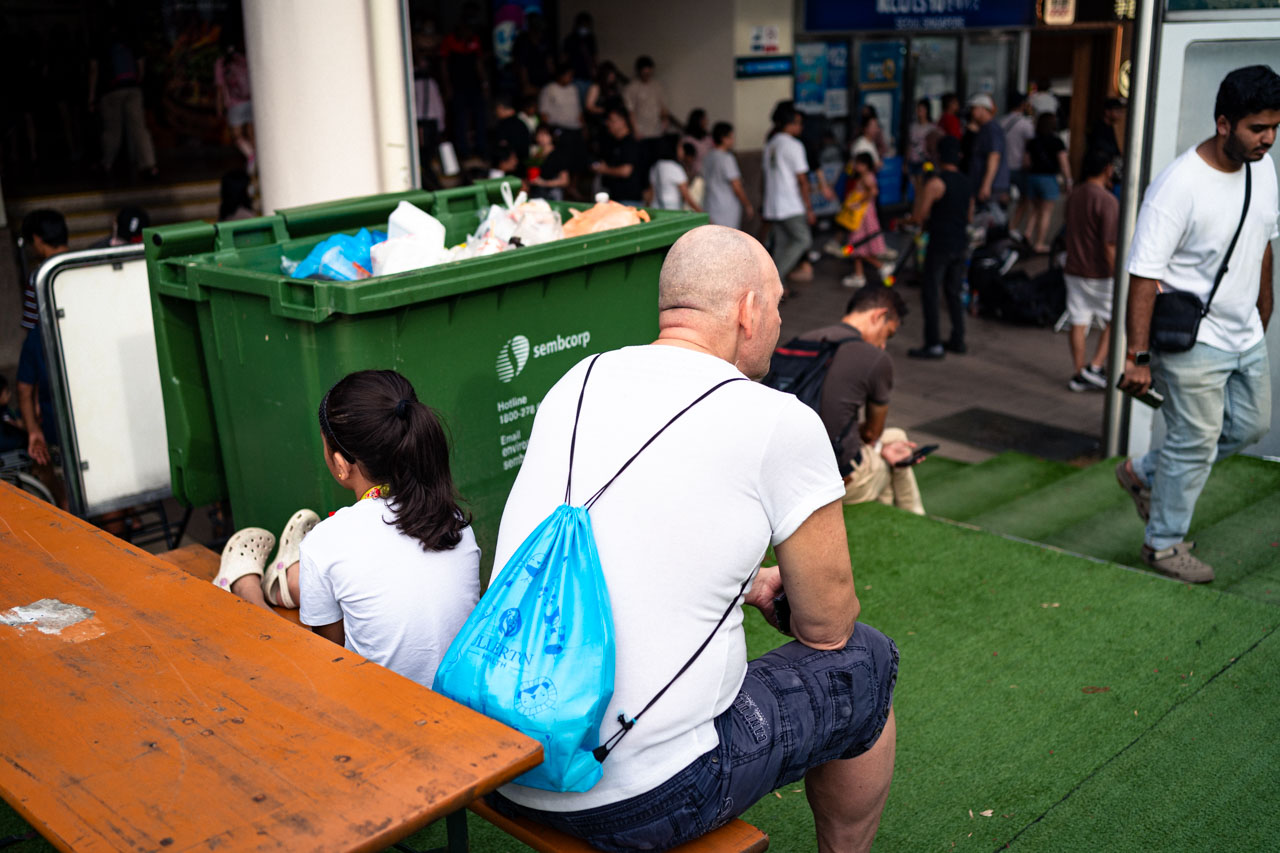Top image: Stephanie Lee / RICE file photo
This story is part of RICE Media’s Storytellers initiative, a mentorship programme for budding content creators to learn about the art of creative non-fiction. This piece is a product of a partnership between RICE Media and Singapore Management University (SMU) for its Professional Writing module.
Would you believe me if I told you that there were aliens in Woodlands?
My 7-year-old self would have sworn to you that small, pale beings had quietly taken over large houses up on a mysterious hill.
I now know that these were not, in fact, aliens but the children of American expats who went to the Singapore American School.
As I grew up, I rarely saw these children at the same places my friends and I used to hang out at. They didn’t seem to fit in in Singapore. I was sure that it would be difficult for them to be friends with us.
It’s 2024. First contact was made. I ask Elliot Wilcox, who migrated from London when he was 3, if he had any difficulties integrating into Singapore when he grew up, eager to confirm what I already knew.
Instead, Elliot says: “Nope. No problem at all”.
The Expat Experience
But before we get to Elliot, can you really blame me for thinking that we aren’t the most welcoming people?
The news often reports how xenophobic Singaporeans are. Like the resurgence of dengue after rainy periods, xenophobia emerges in the wake of difficult times.
For example, the pandemic was a booster shot that reinforced our discriminatory views. When tension was heightened, Minister Grace Fu had to appear in the Regardless of Race dialogue to stress the importance of playing nice.
There are many reasons for this ‘us versus them’ mentality. The “they took our jobs!” sentiment is probably the most common one and has fuelled tension between locals and foreigners ever since MNCs concocted their expat packages.

Surely, these anti-foreigner sentiments would influence how we treat expat children.
Aside from discriminatory views towards foreigners, expat children may not have the best rep among locals as well.
Common remarks in conversations are that they are spoiled and out of touch. Maybe it is the foreign accents, luxurious homes, or the exclusive and supposedly unhinged parties that push these stereotypes.
Such a negative rep may mean that locals are not keen to befriend them. The National Youth Council (NYC) conducted a mass survey and found that only 17 percent of Singaporean youths feel that locals and foreigners get along well.
Then, there is the issue of adjusting to a new environment. Regardless of how locals treat them, expat children themselves are at a high risk of adjustment issues as they are uprooted from their lives and forced to live in a new environment. Expat Child Syndrome is the term coined by experts to describe this phenomenon.
Therefore, even if they are welcomed by locals, expat children may still struggle with forming strong social bonds as they grapple with mental health and identity issues.
Xenophobia, reputation and adjustment issues all point to the fact that expat children are not able to integrate well in Singapore and are separated from locals by a barrier we call the expat bubble.
This makes being an expat child an unenviable situation. Imagine having to deal with the emotional and social struggles of a new environment, all while being perceived as unwanted.
So why did Elliot tell me that he had no problems with his integration at all?

Different, But Not Deterred
The most surprising revelation from our conversation was that, contrary to my expectations, Elliot and all his friends at his international school thoroughly enjoyed growing up in Singapore.
“I’ve never heard anyone say that they hated living in Singapore. Only that they loved it”.
Elliot explains that he and his international school friends enjoyed the safety of Singapore, the fact that there were always things to do, and the fact that everyone was close to each other.
Elliot and his friends were also treated well by locals when they had a chance to interact. They bonded through football when they played in local clubs. Elliot made quite a few friends from local schools. “I still speak to a few of them,” he says.
“You didn’t really see any difference between the two groups”, he reflects when I asked if he was treated differently for looking like a foreigner.
“After you’ve spoken to anyone who is Singaporean, they sort of just understand. I’ve never had any issues.”
During his time in National Service, Elliot was the singular British face in a sea of Singaporean faces. Despite being stared at a lot, it was a great experience, and he made a lot of friends.

I knew that Elliot was as Singaporean as they come when he told me his favourite part of the culture was not Gardens by the Bay, but rather hanging out with friends in a neighbourhood coffeeshop.
As for the negative stereotypes of expat children, there are some truths to it, Elliot affirms. “A lot of families have a lot of money when they’re coming to Singapore; sometimes the parents sort of just don’t really care”.
But he stressed that none of the people he knew personally were like that. And that it wasn’t a barrier to making local friends.
In essence, Elliot and his community felt welcomed in Singapore and faced no problems growing up here.
What about Expat Child Syndrome, then?
Expat Child Syndrome
For Elliot, adjusting to Singapore was not an issue as he grew up here since he was tiny. So I spoke to Julian (he preferred not to be fully named), who migrated here from the United States when he was 10.
Julian did not go to an international school. Instead, he pursued music in SOTA, which was mainly attended by Singaporeans.
We would expect adjustment issues to be the worst for children like Julian, who have to start over midway through their childhood.
For Julian, attending a local school came as a shock—not for social and emotional reasons, though. He initially struggled with academics, as they were much more difficult than what he was used to.
But he made friends just fine. Ironically, the only person he didn’t get along with was another foreign student in his class.
“I didn’t really have that much of a problem assimilating… within three months, or less than a month or two, it felt pretty normal”.

So, if expat children supposedly have such a difficult time orienting themselves to life here, what made Elliot’s and Julian’s experiences so positive?
Julian believes that integrating into Singapore was not an issue mainly because Singapore is already highly international. It’s not uncommon to interact with people from all over the world.
“I remember in primary school, there were Indonesians, people from China, a girl from Israel… and that was just in my class of 30 people. I think that all helped to make it feel very easy to come here as an international person.”
Such a racially heterogeneous environment creates a welcoming atmosphere, as people are likely to be more accepting of each other’s differences. It has led to a positive attitude towards foreign students.
“The last three years that I lived there, so from 2017 to 2020, I would have primarily identified myself as Singaporean, almost more so than American… that’s not changed since I’ve come back.”
Having moved back to the US for college, Julian found that the sentiments toward international students were not as positive there—a stark contrast to his experience in Singapore.
If Julian or Elliot faced any difficulties in integrating into Singapore, they were not so much about being accepted by locals as about the economic structures that act as barriers for internationals. For example, the significantly higher cost of living for non-PRs and citizens.
Of course, not everyone is so welcoming to expats and their children. Hop on to any local discussion forum about expats, and you will find commenters blasting off into angry, xenophobic tirades.
“I find most whites in Singapore could benefit from getting kicked in the teeth”, writes one commenter. I don’t think Elliot’s gleaming crowns have much to benefit from that.
Most commenters, however, are eager to share their positive interactions with expat children.
“I will say that my experiences interacting with people from international schools so far have been positive; they’re usually well-spoken and very outgoing”.
However, it is true that many expat children are stuck in a bubble. Amongst other reasons, one commenter points out that “in a typical HDB environment, you hardly come across international students”. This limits the opportunities for expat children and locals to socialise.
Elliot believes that this expat bubble exists because some expat children don’t stay in Singapore for long, so they naturally don’t feel the need to try integrating.
But if these expat children are willing to step out of their bubble, Singaporeans will generally be happy to treat them as friends.

A Not-So-Contrived Multicultural Singapore
Ultimately, anti-foreigner sentiments exist in Singapore. We see it in the news, on social media or in our conversations. The research also tells us that we have not integrated foreigners well.
But at the very least, this may not represent the experiences of expat children who have come to love Singapore and its people. It is heartening to hear that they feel welcomed and are glad to have lived here.
Julian and Elliot’s experiences show that Singaporeans are more accepting of those who are different from us than we give ourselves credit for.
We are often cynical about the seemingly contrived agenda of racial harmony. I was no exception and chose to spend most of Racial Harmony Day in school hanging out with the same all-Chinese friend group that I always had.
Yet, it seems that our unique position as a multicultural hub has had a positive impact on how we treat those who are different from us.
Perhaps it has given us a more open mind, and that has trickled down to create a safe and enjoyable experience for expat children.
After finishing my assignments, I went for my weekly run at the Woodlands Stadium track. I noticed a group of expat children racing each other.
Their banter echoed throughout the stadium, a back-and-forth flurry of Singlish and American accents.






